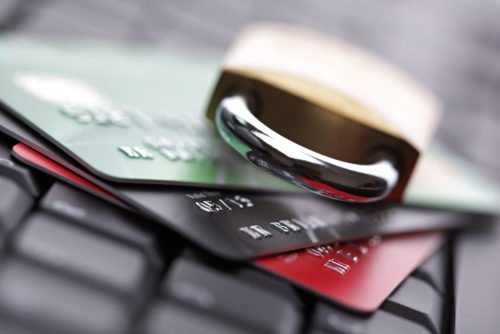Personal finance technology is booming and people everywhere have more access to (and information about) their money now than they ever have before. People can easily find their balance, their credit score, credit card offers, loan offers, banking tips, investing information, and more.
However, the more access that we have to our finances, the more access thieves have to our finances as well. Not only that, but those new to using personal finance technology (or fintech) may be more susceptible to fraud or identity theft as well which has a negative effect on credit. Knowing the risks and taking precautions can make all the difference in your financial security.
Table of Contents
Security Isn’t Growing as Fast as Innovation
Technology and financial services are coming together to create solutions made to impact nearly everyone. In 2015, there were 807 fintech venture funding deals, 97 more than there were in 2014, and the number continues to rise. With so much innovation happening, it’s inevitable that some of these companies will fall short on security in order to get on the market fast. There is a gap between technology evolving rapidly and security frameworks that change more slowly, therefore the risk is higher.
Companies creating these products should take time to look into weak points of security in order to prevent breaches, and consumers should take their time with new technology and use extra caution. Technology has completely changed personal finance, but it does carry some risk with it. Until cybersecurity can keep up with technology innovation, there will always be a bit of a lapse in security that carries more risk.
Those New to Financial Technology are More Susceptible
The great thing about the expanding world of financial technology is that many people have more access to the online banking world than they did before. It’s helpful to know the ins and outs of your finances in real time. There is more understanding about investing, credit cards, credit scores, and loan opportunities as more access is created. For those that didn’t grow up with financial technology, it’s helpful to have more access and knowledge of your financial spheres.
However, those new to financial technology can be more susceptible to cyber security issues. Bankers have highlighted a few important online banking tips for those that aren’t so keen on the online banking world in order to make things easier, as well as more secure.
However, there are some things that you learn as you go, and new users could be in danger of this learning curve. Using the same password for everything, leaving saved passwords on your phone or desktop, or entering credit card information on unsecure sites are a few things that can lead to fraud or identity theft. Spotting a sketchy site or email can be difficult for those that aren’t seasoned in the internet world, and in a world where entering financial information online is so normal, fraud is a very real risk.
The Increasing Risk of Fraud and Identity Theft
There is an increased risk of fraud and identity theft now because personal finance tech is so commonplace. The more access that we have to our finances, the more access thieves have to our finances as well. When the only door to enter our bank accounts was through a bank, security was tighter – though not as high-tech as it is now. These days, a variety of apps and online venues have opened up new doors to our finances. Security may be better than it once was, but it’s having a hard time keeping up with all the fintech popping up. As a result, we are at a higher risk of a data breach, experiencing fraud, and having our identity stolen through our financial information.
The next steps for personal finance technology will include heightened security measures (some of it’s already happened with the inclusion of chip technology), but it’s not bulletproof yet. Until then, it’s important to have virus protection, strong passwords, and to keep track of bank transactions. Shred mail, protect your mobile device, and keep up with your credit report. Online shopping, automated bill pay, and secondary payment services are all common enough to be okay to use, but still require your diligence in order to prevent the increased risk of fraud and identity theft it can cause.
Putting Your Credit on the Line
With each new fintech advancement there’s a new way for hackers and thieves to find their way into it. Security requires constant innovation as well as the tools themselves in order to stay on top of security risks.
Fraud can hurt you in many ways, one of which being your credit. Your credit is your financial life line – it’s your financial “good word” in terms of loan opportunities, investing, and purchasing power. Something like a stolen identity is something that can affect your credit long term while it’s being sorted out. A stolen debit or credit card may have funds returned and a new card sent in enough time. A stolen identity can be going on for a long time undetected and have a terrible effect on your credit long-term.
Utilizing the amazing personal finance technology being created is not a bad thing. It can help you to budget better, have a broad view of your finances at all times, and understanding in investing that you didn’t have before. However, it can also lead to bigger security risks. Cyber security measures are always being improved upon, but it’s always a good idea to be aware and cautious with your finances online. Especially if you’re new to the world of fintech, taking precautions is never a bad idea. Your credit can be at risk, and thus your financial life line, so it’s important to know that having our personal finances online can carry security risks with it’s benefits.
Looking for more ways to secure your credit card? Visit our credit card resource center for more guides. For more information on credit scores, visit our credit score learning center.
Image Source: https://depositphotos.com/





